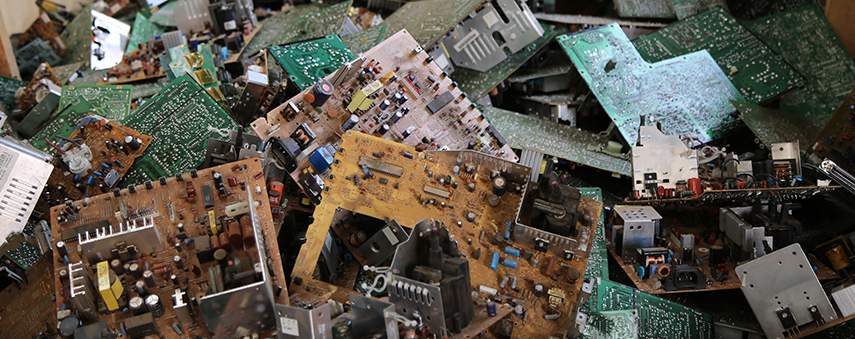E-waste and the human cost of recycling tech

Credit: Rwanda Green Fund
As our appetite for consumer electronics grows, and the average lifespan of a device gets shorter, we face a mounting problem. China, no longer the world’s dumping ground, is attempting to tackle their e-waste problem head-on.
On the South China Sea coastline sits one of the largest e-waste sites in the world. Across vast wastelands, discarded electronics pile high. Workers huddle in groups, smelting components to extract valuable metals like silver and gold. Home to just 150,000 people, Guiyu has gained international notoriety for its role in the dismantling and recycling of “end-of-life” tech.
In the last decade, various tests had concluded that there have been disastrous consequences to the local environment and the people of Guiyu. One such test showed that 80% of children had hazardous levels of lead in their blood. Nearby rivers were found to be contaminated with dangerous amounts of copper, the land had become tainted, and noxious fumes constantly blanketed the air.


What are they doing to tackle e-waste?
China, no longer content with being the world’s dumping ground, has taken significant steps towards cleaning up towns like Guiyu, which was once dubbed “the electronic graveyard of the world.” Wastewater is now treated before being released, and workers adhere to stricter guidelines regarding their own health. The Chinese government is also taking further steps to tackle international imports of e-waste, building upon last year’s ban.
Baidu, one of the world’s largest AI and internet companies, has developed an application in conjunction with UNDP China. The app, named Baidu Recycle, allows users to price and recycle their electronics with certified recycling companies. It has been recognised by the United Nations as a top Global Solution to the e-waste crisis, and other countries are eager to learn from China’s innovation.
The negative impact of handling imported waste isn’t limited to China. Other countries in Asia, like Vietnam and Indonesia, look to pro-actively pursue a solution to e-waste. Following China’s example, these countries are now taking steps to decrease their imported waste and address their own.
As well as looking to clean up the environment, there is also an economic upshot to e-waste recycling. As one of the largest manufacturers and consumers of electronics, China could capitalise financially: if they implement the correct strategies.
Waste from computers, mobile phones and other electronics is set to reach 15.4 million tons by 2020. Just ten years later, if the recycling target of 85% is reached, they could extract more gold and palladium from that e-waste than is currently being imported, saving 22 million tons of carbon emissions. This is the equivalent of 52,000 flights between Beijing and New York.
Who is responsible for the cleanup?
Ada Kong, a senior program manager for Greenpeace East Asia, said: “The government, electronics brands, manufacturers, investors, and the public each can play a role to develop a circular economy in China, and each can profit.”
Each part of this circular economy is integral and is held accountable. Companies must make their devices easier to dispose of, manufacturers will be required to adhere to stricter environmental concerns, and the government will implement and enforce programs to ensure they move towards their goals.
Kong went on to say that “the economic potential of e-waste recycling is obvious… Electronics brands enjoy wide profit margins, and should incentivise consumers to recycle unused products.”
Moves are also being made to stem the environmental impact of cloud computing and cryptocurrency. Servers used in mining cryptocurrencies like Bitcoin have recently been found to sap tremendous amounts of energy, sometimes as much as entire countries. One report, by China’s National Development and Reform Commission (NDRC), has even gone as far as proposing an outright ban on cryptocurrency mining.